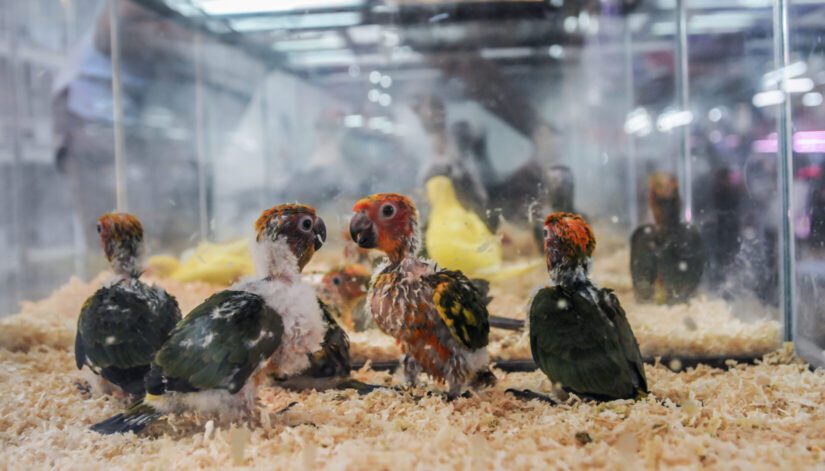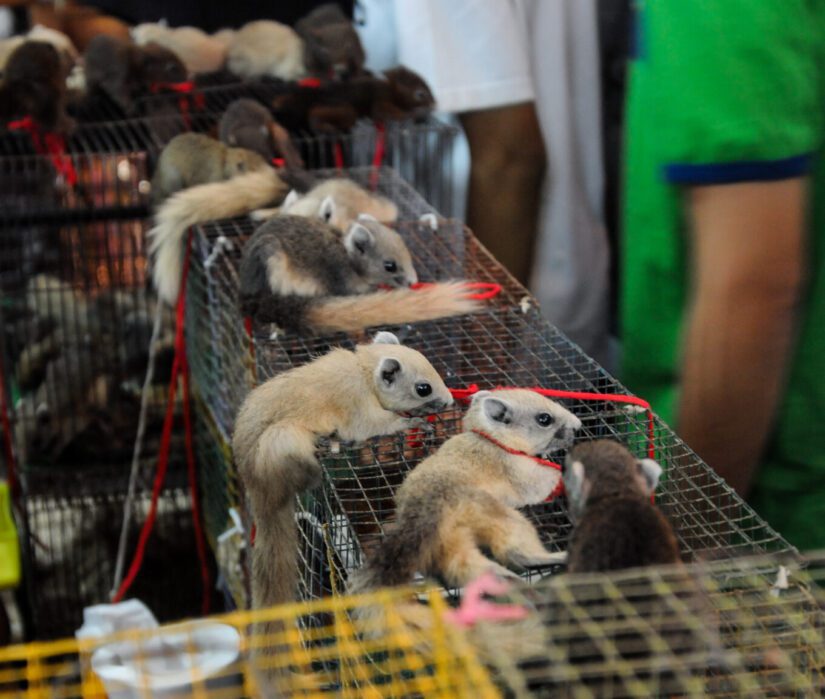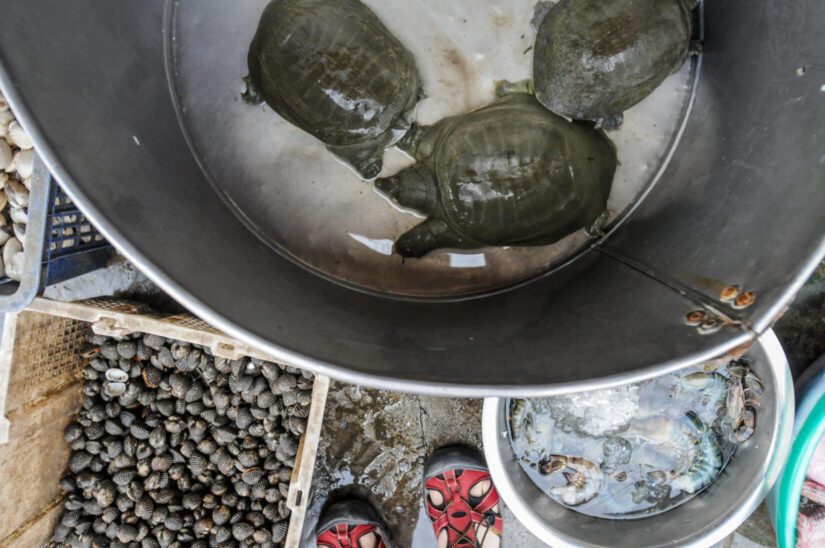Update: The federal petition to end the wildlife trade has now closed. More than 13,000 Canadians voiced their concern about this issue. Thank you to everyone who spoke up for wild animals everywhere! Read the government’s official response.

Original story: January 7, 2021
The BC SPCA is concerned about the global wildlife trade and is part of a coalition in Canada working to stop the trade to address the spread of zoonotic diseases (disease transmitted from animals to humans), help prevent future pandemics and protect millions of wild animals worldwide from suffering. A federal e-petition has been launched by the coalition to demand that the federal government end the wildlife trade. Sign the online petition before the April 2, 2021 deadline.
Wildlife markets
The science is clear that zoonotic diseases from wildlife are a serious threat and account for at least 70 per cent of all new diseases (Emre Can et al., 2019). Live wildlife markets have played a significant role in the current pandemic as well as the previous SARS epidemic, and are responsible for the poor treatment and exploitation of wild animals. Live animal markets, in which many animals come into close proximity with each other and with people, provide the ideal conditions for a virus in one species to be transferred to another, including humans. The crowded, unsanitary and stressful conditions for animals in live markets is unnatural and promotes the emergence and spread of infectious diseases.

Global wildlife trade
Millions of wild animals are captured, bred and traded each year around the world for food, traditional medicine and as pets. At every stage of the trade, zoonotic disease transfer is a risk not only to surrounding communities but also globally.
In July 2020, the BC SPCA joined a coalition of Canadian and international organizations, academics, conservationists and zoonotic disease experts to take action nationally. We called on the Canadian government to bring this issue to the G20 Leader’s Summit in November 2020 and urged other countries to support the closure of live wildlife markets as well as end the international trade of wild animals and their products. We also asked the Canadian government to address Canada’s contribution to the issue by curbing the import and domestic trade of wild animals and products.
Although G20 Leaders have pledged to ensure that pandemics like COVID-19 never happen again by committing to “advancing global pandemic preparedness, prevention, detection, and response” and acknowledge “the need for long-term solutions”, the Declaration from the Summit falls short of recognizing the undeniable link between the global wildlife trade and pandemics as well as the urgent action needed to end this practice.

What can you do?
Take action and join the BC SPCA, other experts and fellow Canadians to voice your concern about the impact of the global wildlife trade to help prevent future pandemics and reduce animal suffering.
Learn more about the organizations involved, polling results and sign the national petition to curb the global wildlife trade:
- Read why we need to curb the wildlife trade from World Animal Protection.
- Demand an end to the global wildlife trade by signing the World Animal Protection petition.
- Check out the World Animal Protection polling results.
- Write to your Member of Parliament (MP) to voice your support for this coalition call to action.
- See which zoonotic disease experts and celebrities are backing this call to action.
Note: This campaign is now closed.
